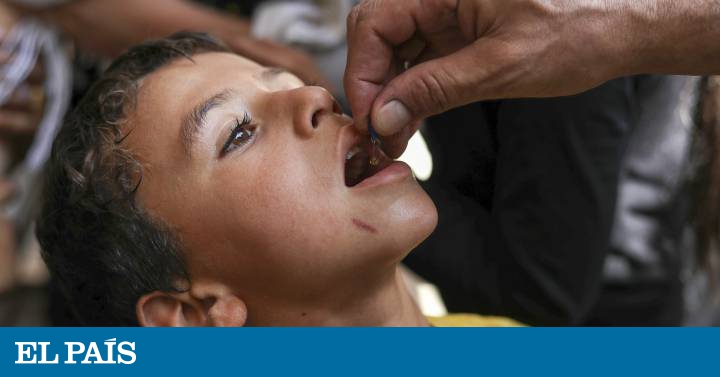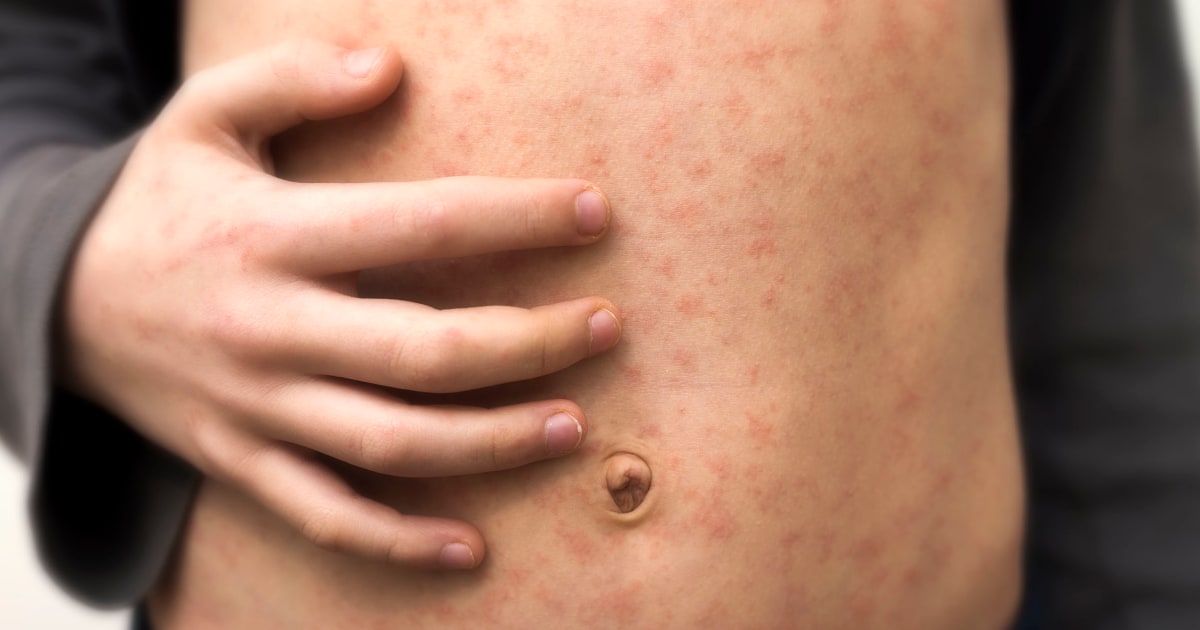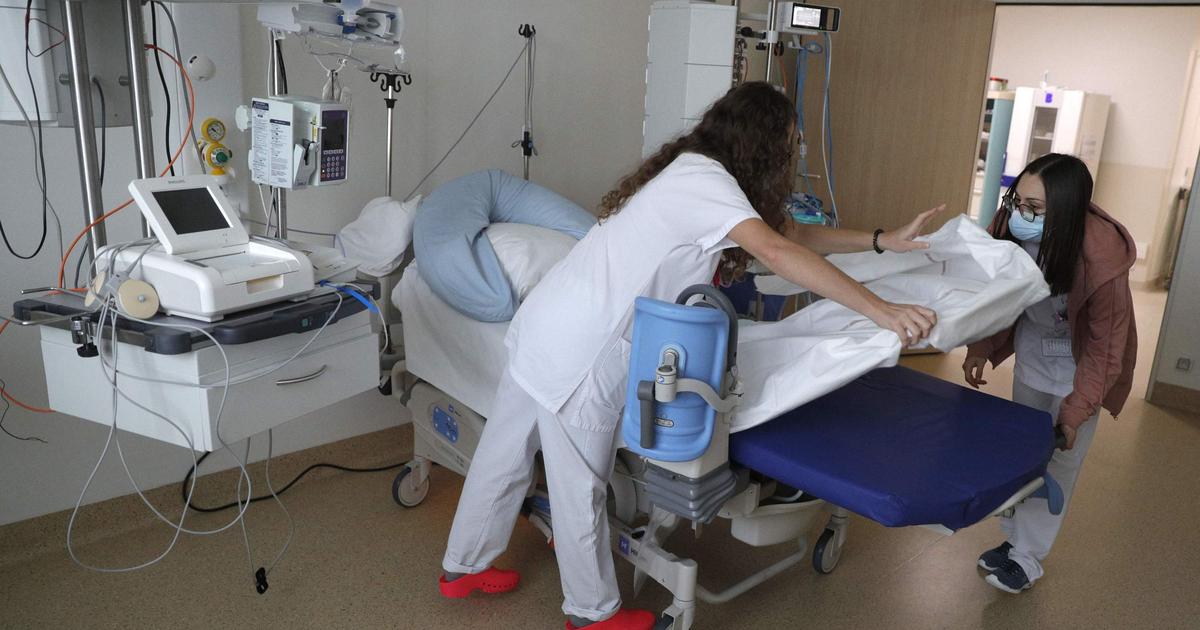The coronavirus crisis, which has already left more than two and a half million infected and nearly 170,000 dead, is now joined by another fight against one of the preventable diseases that has been vaccinated since 1963: measles. To the possible setback in the investigation of three of the great epidemics of humanity, such as AIDS, tuberculosis and malaria - which kill almost three million people each year, mainly in Sub-Saharan Africa and Asia - is added the risk that advances in immunization against this disease will be paralyzed by the covid-19 health emergency.
MORE INFORMATION
A country without ICU beds, at war, with the measles epidemic and now the threat of coronavirus- Measles: 6,000 deaths in 2019 (only in the Democratic Republic of the Congo)
- The 11 hoaxes that anti-vaccines repeat without stopping
More than 117 million children in 37 countries are at risk of not receiving the coronavirus measles vaccine, they have warned from the Measles and Rubella Initiative (M&RI). Of this list of 37 countries, 24 of them have already been delayed, without a specific date, the immunization campaigns planned for this 2020. The remaining 14 others are currently evaluating the possibility of carrying them out, but given the speed and progress of the covid-19 pandemic, suffer the same fate as the previous ones. "Provision of all immunization services, including measles, is essential to save lives that would otherwise be lost to vaccine-preventable diseases," members of a public-private alliance said in a joint statement. It includes WHO, UNICEF, the United States Centers for Disease Control and Prevention (CDC), the United Nations Foundation, and the United States Red Cross.
The measles vaccine has saved the lives of 23 million people between 2000 and 2018, according to WHO figures. However, in 2018 there were more than 140,000 deaths, most of them in children under the age of five. Half of the deaths were caused by outbreaks in five countries: Democratic Republic of the Congo, Liberia, Madagascar, Somalia, and Ukraine. Vaccination campaigns for this year have been postponed in all of them. "In many countries the impact on health goes beyond those who get sick from coronavirus. Measles is a very clear example: if vaccination is interrupted where you die from this disease, we put the lives of children at risk," explains Blanca Carazo, Head of Programs at Unicef Spanish Committee.
Sub-Saharan Africa and Asia, the worst hit areas
The Democratic Republic of the Congo (DRC), a country with a fragile health system, plagued by continuous outbreaks of Ebola, war and with 310,000 diagnosed cases and 6,000 deaths in 2019 due to measles, is one of the most worrisome at the moment. to the international community. "Since last year, it has faced one of the most serious outbreaks in its history," explains Chawki Laatar, head of vaccination and response to epidemics at Doctors Without Borders. Ethiopia, Nigeria, the Central African Republic, Madagascar, South Sudan and Burkina Faso are the most affected by this disease on the continent and they also count cases by the thousands.
Currently, Brazil, Bangladesh, Ukraine, Kazakhstan, and Nigeria are also experiencing a significant measles outbreak. The last to join this list has been Mexico. Despite the availability of a safe and effective vaccine for more than 50 years, in the first months of 2020 at least 150 countries have confirmed infections with this virus. "If we have learned anything from our field work against Ebola, it is that all the health resources that have been put in place to work with other viral diseases should be prevented from being used now to work against covid-19", explains Laatar, It also highlights the importance of vaccination campaigns to avoid other diseases derived from this epidemic, which collapse the already battered health systems of many of these countries.
To get the measles vaccine working, the WHO recommends taking two doses and having approximately 95% of the population immunized. In the DRC, for example, coverage in 2018 was only 57%. "We know that vulnerability to infectious diseases anywhere is a threat to public health, so it is critical that routine immunization programs continue during this crisis. Priority should be given to reaching the most vulnerable children who have missed regular vaccines in the past, "says UNICEF Regional Director for Europe and Central Asia Afshan Khan.
Europe must also be vaccinated
The race to get a vaccine against covid-19 has highlighted, now more than ever, the importance of immunization also in Europe, where the pandemic has been primed especially in Spain and Italy, and has left thousands of dead in just three months.
527,000 children were not vaccinated against measles in Europe in 2018. As a consequence, in 2019 the virus had immunity gaps, infecting more than 100,000 people
On the occasion of European Immunization Week 2020, the regional office of the World Health Organization (WHO) and Unicef have signed a joint statement urging European countries to continue vaccination programs during the pandemic. "Governments across Europe must take advantage to protect people from the many diseases for which vaccines are already available," the organizations said in a statement.
The WHO and UNICEF have recalled that 527,000 children did not take the first dose in Europe against measles in 2018. As a consequence, in 2019, the virus had immunity gaps in Europe, infecting more than 100,000 people of all age groups. The resurgence of this disease, in the United Kingdom, France, the United States and other developed countries, was motivated by the anti-vaccine movement. "Misinformation about vaccines is as contagious and dangerous as the diseases it helps to spread," said WHO Director-General Tedros Adhanom Ghebreyesus in September 2019.
For all this, international organizations have warned that protecting children, adolescents and adults from preventable diseases is a "necessity for sustainability" of health systems. The health crisis caused by covid-19 is a clear reminder that infectious diseases have no borders and that all countries are vulnerable, regardless of their income levels and the strength of their systems .
You can follow PLANETA FUTURO on Twitter and Facebook and Instagram, and subscribe here to our newsletter.















